Introduction
Best Diet for Australian Shepherd: Key to a healthy, energetic life for your Aussie
- Discover the nutritional needs unique to Australian Shepherds
- Explore the benefits of high-quality dog food for optimal health
- Learn about essential nutrients and their roles in your dog's well-being
- Understand how to balance proteins, fats, and carbohydrates effectively
- Tips on choosing the right food for different life stages and activity levels
1. Understanding Australian Shepherd Nutritional Needs
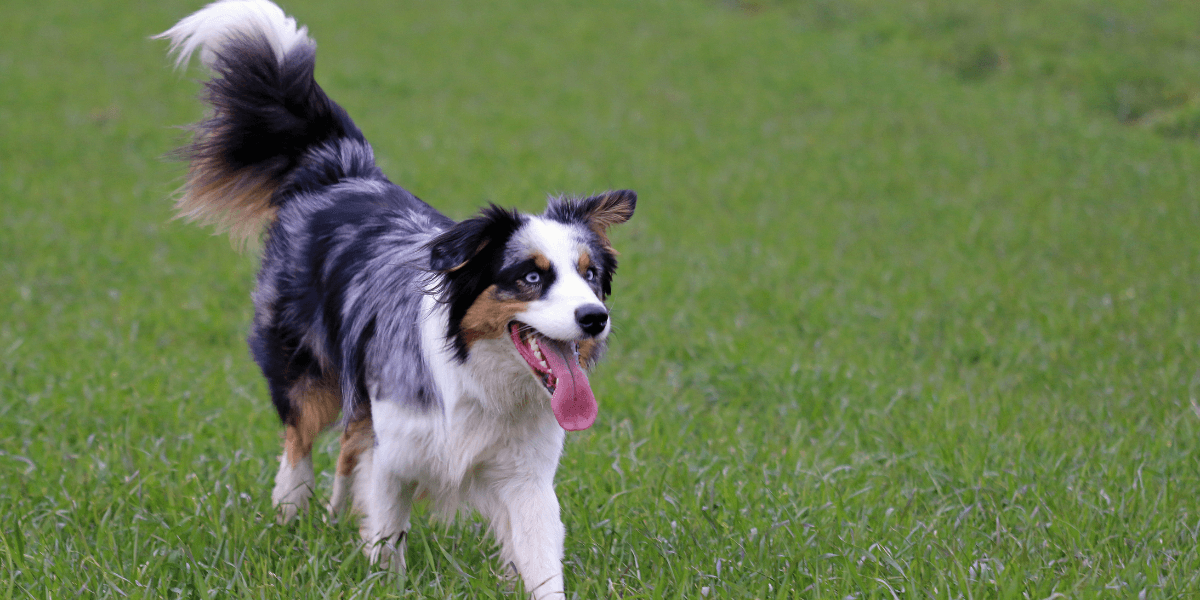
Here’s what you need to know:
- High Protein: Aussies require a diet rich in protein to support their muscular build
- Healthy Fats: Fats are crucial for energy and maintaining healthy skin and coat
- Balanced Carbohydrates: Carbohydrates provide energy and should come from whole grains
-
Omega Fatty Acids: Support brain function and maintain healthy joints in Aussies
-
Fiber-Rich Foods: Aid digestion and promote a healthy gut for your active Aussie
- Essential Vitamins and Minerals: A balanced diet includes vitamins A, D, E, and minerals
2. Choosing the Right Dog Food
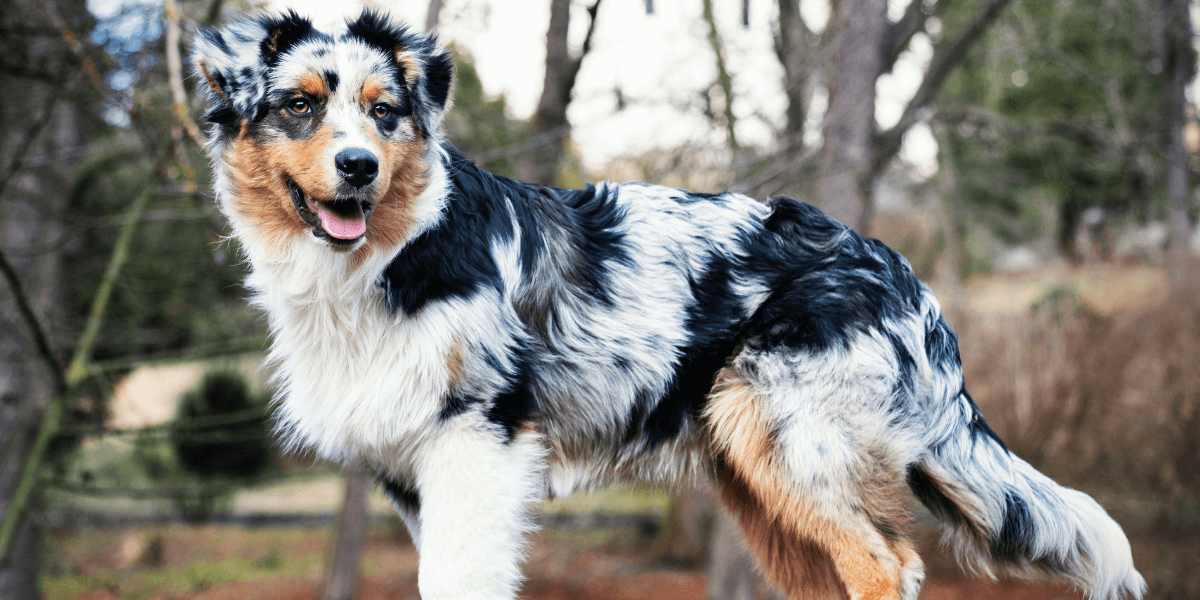
Selecting the best food for your Australian Shepherd involves considering several factors:
- Dry Food: Convenient and beneficial for dental health, dry food is a popular choice
- Wet Food: More palatable and hydrating, wet food can be mixed with dry kibble
- Raw Food: If considering this option, consult with your vet to ensure it’s balanced
- Homemade Diet: Cooking for your dog allows you to control ingredients
- Consider Your Dog's Age: Select food designed for puppies, adults, or seniors on age
- Special Dietary Needs: Opt for formulas catering to allergies or weight control
3. Portion Control and Feeding Guidelines

Ensure your Australian Shepherd gets the right amount of nutrients:
- Feeding Frequency: Most adult Aussies thrive on two meals a day
- Portion Size: Follow the feeding guidelines on the dog food package
- Monitoring Weight: Regularly check your dog's weight and body condition
-
Meal Consistency: Stick to regular feeding times for better digestion and routine
-
Adjust for Activity: Modify portion sizes based on your Aussie’s daily energy expenditure
-
Treats and Extras: Limit treats to 10% of daily intake to maintain a balanced diet
4. Special Dietary Needs
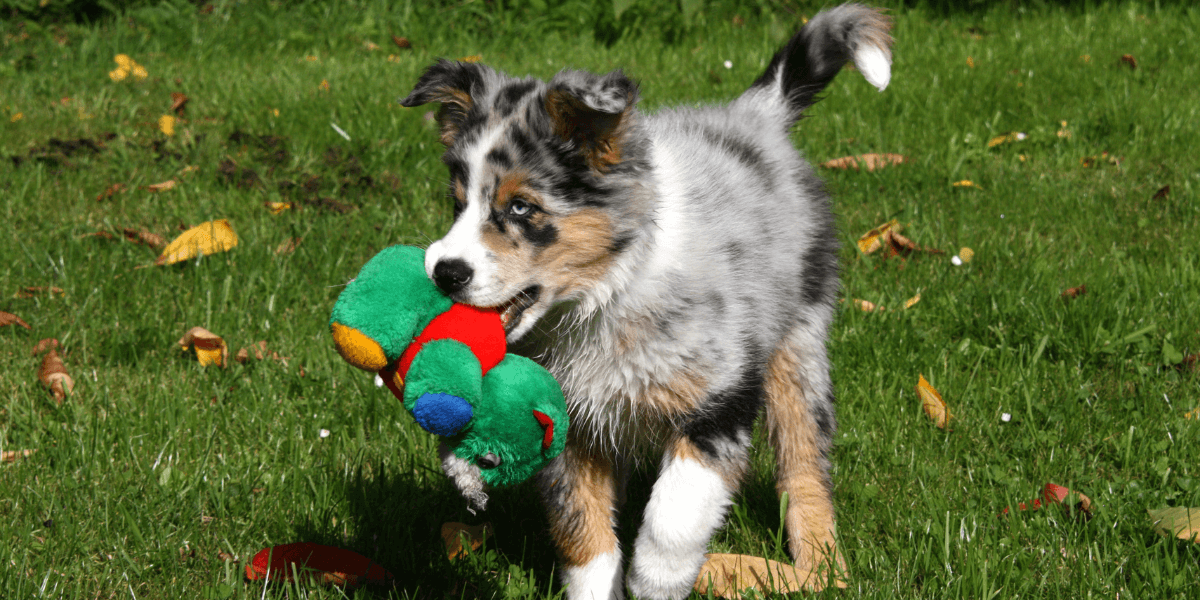
Some Australian Shepherds may have special dietary needs due to health issues:
- Food Allergies: Common allergens include beef, chicken, dairy, and grains
- Joint Health: Foods with added glucosamine and chondroitin can support joint health
-
Weight Management: Opt for low-calorie diets if your Aussie is prone to weight gain
-
Senior Nutrition: Older Aussies may need diets with higher fiber and joint support
- Sensitive Stomachs: For dogs with sensitive stomachs, choose easily digestible foods
Explore this Guide to Great Danes Nutrition for expert tips on crafting a balanced diet for active dogs!
5. Supplements and Treats
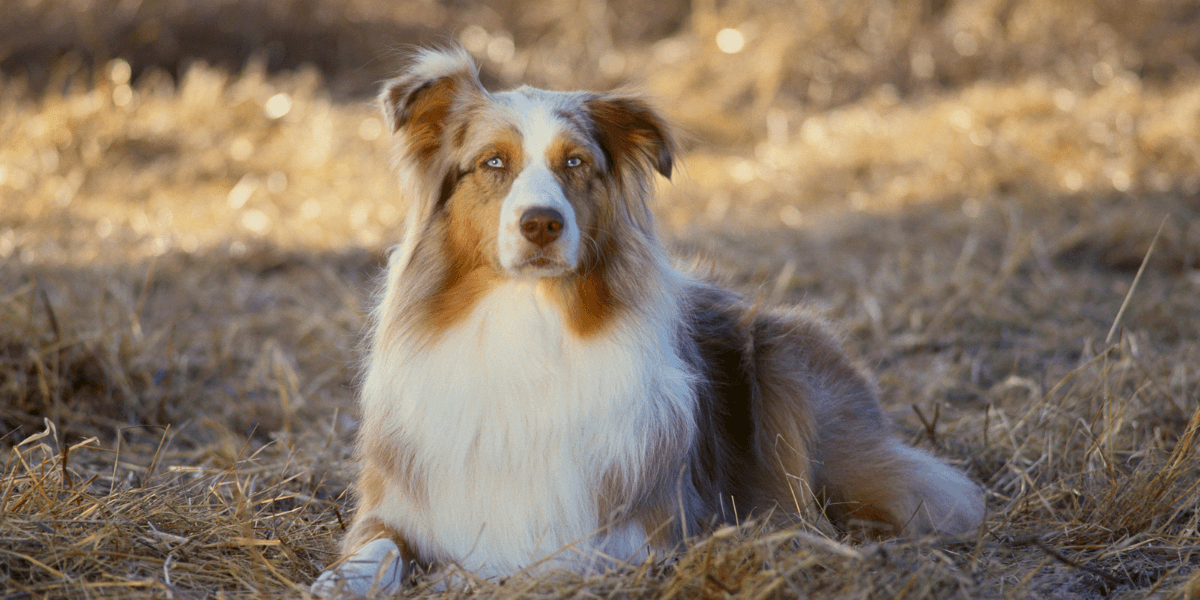
Supplements and treats can complement your Australian Shepherd’s diet:
- Omega-3 Fatty Acids: Beneficial for skin, coat, and joint health
- Probiotics: Support digestive health and can be beneficial for dogs
-
Glucosamine: Supports joint health, especially in active or aging Australian Shepherds
-
Multivitamins: Provide balanced nutrients if your dog’s diet lacks essential vitamins
- Healthy Treats: Choose treats that are low in calories and made from natural ingredients
- Dental Chews: Promote oral health while serving as a tasty and functional treat option
6. Avoiding Common Dietary Mistakes

To ensure your Aussie’s diet is both nutritious and safe, avoid these common mistakes:
- Overfeeding: Stick to recommended portion sizes and avoid free-feeding
- Feeding Human Food: Some human foods are toxic to dogs, such as chocolate and onions
- Ignoring Ingredient Lists: Always read ingredient lists carefully to avoid foods
- Sudden Diet Changes: Gradually transition foods to avoid digestive upset or refusals
- Inconsistent Feeding Schedule: Stick to a regular feeding routine for better digestion
Learn from Hip Dysplasia in Great Danes to avoid mistakes and keep your Aussie Shepherds healthier.
7. Regular Vet Check-ups
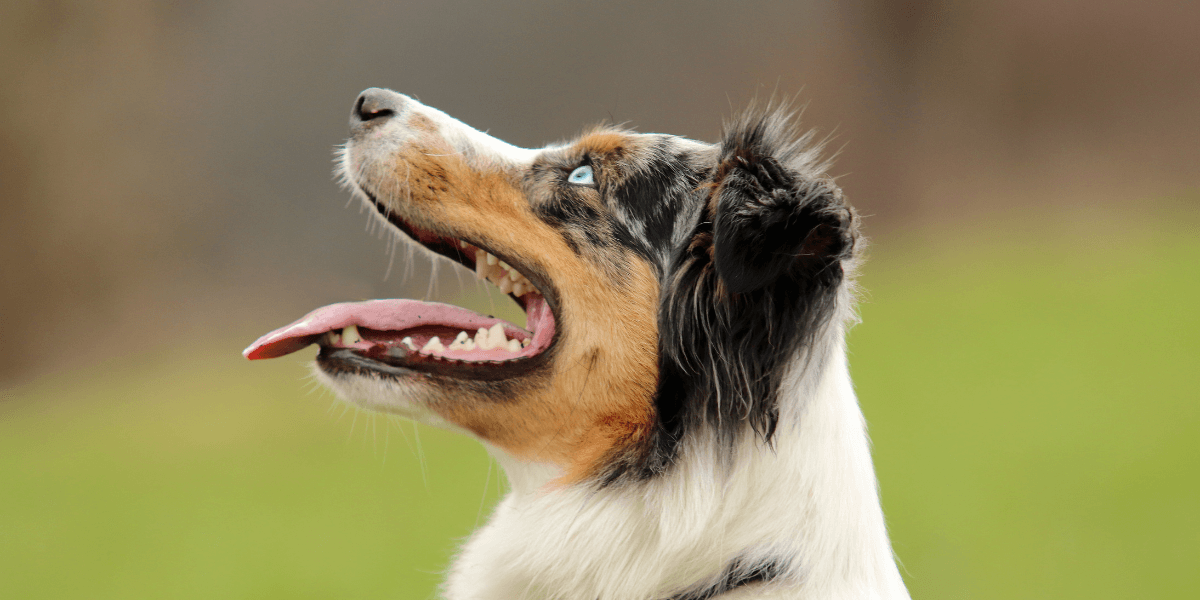
Regular veterinary visits are essential for maintaining your Australian Shepherd’s health:
- Nutritional Assessments: Your vet can provide personalized dietary recommendations
- Weight Monitoring: Regular check-ups help ensure your dog maintains a healthy weight
- Health Screenings: Routine screenings can catch any potential health issues early
-
Vaccination Updates: Ensure your Aussie stays up-to-date on essential vaccines
-
Dental Checks: Regular vet visits help prevent dental issues and maintain oral health
Discover The Best Orthopedic Beds for Great Danes to support your Aussie Shepherd’s joint health today!
FAQs
1. What’s the Best Diet for Australian Shepherd?
- A balanced diet with high-quality proteins and fats is ideal
2. How often should I feed my Australian Shepherd?
- Feed twice daily for consistency and to maintain energy levels
3. Are there specific foods Australian Shepherds should avoid?
- Avoid foods with fillers, artificial additives, and excessive grains
4. Can I give my Australian Shepherd human food?
- Some human foods are safe, but always check for harmful ingredients
5. What are the best treats for Australian Shepherds?
- Opt for low-calorie, high-protein treats like freeze-dried meat
6. How does the Best Diet for Australian Shepherds support health?
- Proper nutrition promotes coat health, energy, and overall well-being
7. What should I consider when choosing dog food?
- Look for high-quality ingredients and ensure it meet AAFCO standards
Conclusion
- Adhering to the Best Diet for Australian Shepherds promotes health and vitality
- Balanced nutrition is crucial for maintaining your Aussie’s overall well-being
- Monitor your Australian Shepherd’s weight and adjust their food as needed
- Regularly consult with your vet to ensure optimal diet and nutrition
- Invest in high-quality food to support long-term health and happiness
Leave a comment below with your thoughts or experiences!
References
For more information on the Best Diet for Australian Shepherds, check the:
- Ideal Diet for Australian Shepherds – The Ultimate Australian Shepherd Feeding Guide
- Best Diet for Australian Shepherd
- A Guide to Preventing Joint Problems in Dogs
- Common Causes of Hip and Joint Pain in Dogs?
- What’s the Best Dog Food for an Australian Shepherd?
Thank you!




